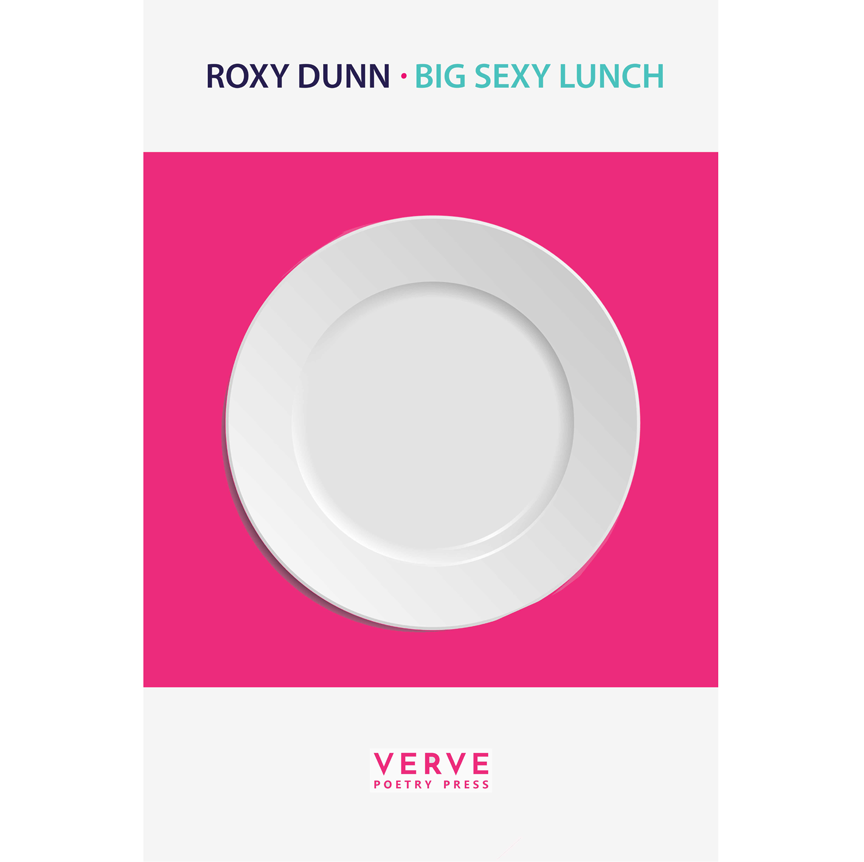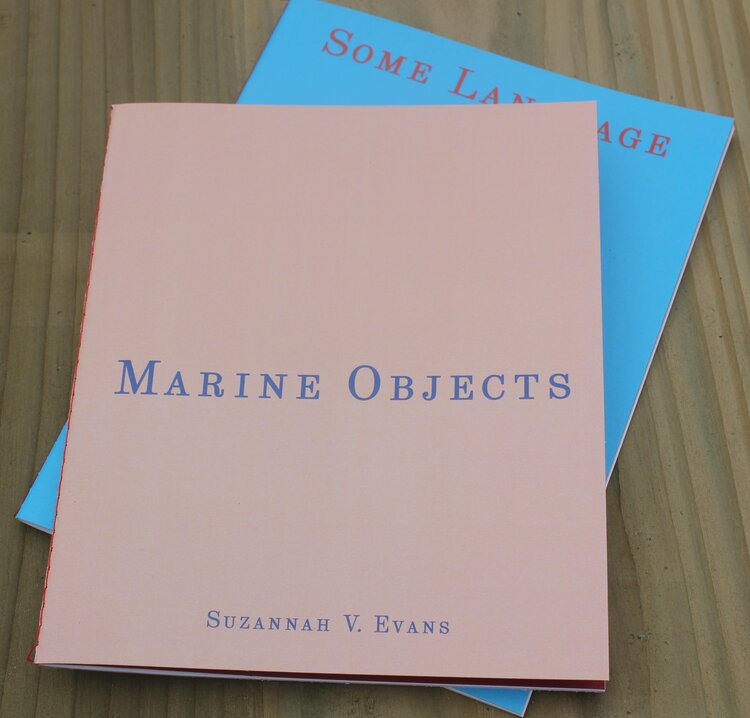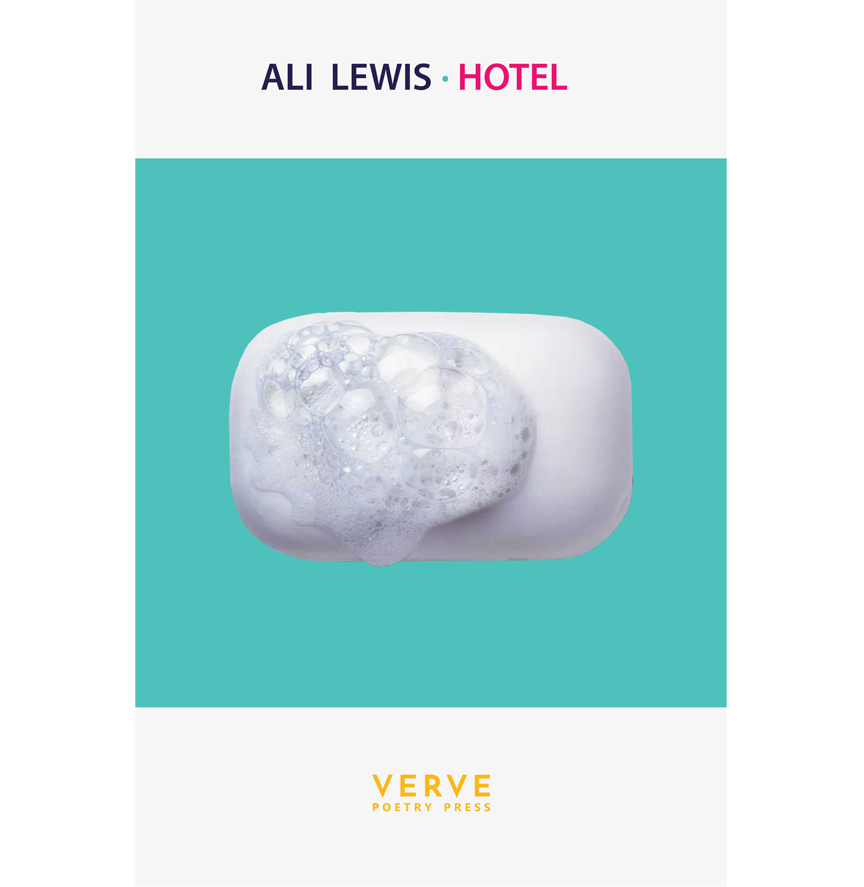Two presses produce introductions for three emerging poets, proving that the pamphlet form is as versatile as ever.
The title poem of Roxy Dunn’s Big Sexy Lunch sets the scene for what is to follow: indulgence without guilt. ‘I advise’, Dunn writes, ‘a big sexy lunch / The six course Italian kind / Beginning with champagne / Warm smoked eel’. This ‘hazy satisfaction’, will lead, we are told, to you ‘living / Your best life.’ It feels like Big Sexy Lunch then spends the rest of its time reckoning with that epithet. These are poems for anyone whose ‘default setting is nostalgia’; for those lost and alone together: ‘everyone and everything / so horribly beautiful and appealing’ (‘August Conker’).
There is a lot of wine, streamed music, sex, and slouching in London parks, but also heaps of doubt. Each anecdote feels like it is trying to wrangle back towards the serenity the couple experience in the opening, moments of joy peppering a lingering uncertainty. Dunn’s mood-board captures life in the capital for a cast of young professionals: NGO workers, Malbec drinkers, ‘sleeveless boys in Finsbury Park shooting hoops’ (‘Weeds’). ‘At Elephant and Castle I muse on polygamy / It smells aqua-green, tastes conceptually appealing’, Dunn announces in ‘Sweet Casanova’, a ready-reckoner for the ‘fleetingness’ that these characters’ lives seem beset by.
At its most intimate, like in ‘List’, there’s a tenderness to Dunn’s writing: a sense that a generation are being honestly captured. ‘I think you might be provincial’, reads the text the narrator imagines in lieu of receiving actual communication, ‘you try too hard to be cultivated / which makes me suspicious’. Of course, when poems include Virginia Woolf’s suicide – ‘I could just bob under (not / to get all Virginia Woolf about it)’ (‘July 24th’) – we understand that cultural capital – namedropping as currency – is being ironised, but because the poems rarely shift from this sardonic register, Big Sexy Lunch feels more ingratiating than truly satisfactory. As a tray of Hors d’Ouevres, this pamphlet – Dunn’s second – offers up tantalising morsels, but it would be interesting to see, as it were, the full course. Hints of something more wholesome appear, paradoxically, in briefer poems such as ‘There’s an Urgency!’ where a couple are shown as ‘a ridge cut crisp ad / selling intimacy’, and in general the more pared-down poems are the best in the book; the ending of ‘Exes at Lunch’ containing a knockout example of Dunn’s capacity for distillation:
The frayed tether’s return is unexplained
Why in this safe embrace our arms serve
up everything lost, and not gained
Suzannah V. Evans’s double pamphlets are tactile works of beauty which suggest their intentions even before being opened. The reader is invited to engage with the poems tidally: to scan backwards and forwards between accretions and deposits. Some Language, in its oceanic blue cover and red typeface, is slightly bigger than the sandy-shelly exterior and blue print of Marine Objects, meaning that the ‘natural’ way for the pamphlets to sit together – saddle-stitched as they are – is for MO to be enfolded within SL. The effect is a reading experience unlike any other: distorting the typical front-to-back trajectory, we are presented with a fragmentary narrative which only begins to coalesce as we find our own way through the pamphlets. Inevitably, it becomes easier to read the two works discretely, but the fact that Guillemot have presented the reader with such a tangled experience speaks to their penchant for bespoke art objects.
Illustrated delightfully throughout with fine drawings by Chloe Bonfield (some of which themselves fold out further, multiplying the tactility and charm of the works), these pamphlets are a joy to navigate. The poems, too, meet the high standards of their presentation, Evans’s voice adding superbly to a realm of littoral verse most interested in edges and undersides. There is a melodious quality throughout, with songlike repetition creating an aura that I can only describe as reflective. In ‘Silk, Poets’ (SL), a simple comma divides thirteen lines so that object and subject, caught in states of (in)action, press on and through to the next metamorphosis:
Silk coat, the sky.
Sky blue, the creels.
Crawling, the lobsters.
Leaping, the mackerel.
Making, the poets.
Evans’s lines, in their apparent simplicity, are always exacting and expansive: capturing the movements of the shoreline precisely, she then curates them back to us to re-witness their transcendence. ‘Catherine Opens a Window / Crustacean’ (SL), which riffs on and incorporates lines from a Hamish Hawk song, is a more narrative-driven poem. In it, the onset of cancer is compared to the deaths of birds and fish:
I remember Maxwell / I remember his mum too /
Her hands in the cool drawer of the fridge
and the sea, too, like a fridge, with its layers and shelves,
its sudden cooling, the forced evacuation of its benthic inhabitants.
In ‘Balancing and Barnacled’, the lodestar of Marine Objects, we see Evans taking inspiration from Eileen Agar’s 1939 sculpture Marine Object. Agar’s practice of assemblage drives not only the bricolage of this poem, but these works as whole. In their ‘amplifying the coincidences of circumstance and crustacean’, Evans has found a unique way in to framing the marine lyric and its place within ecopoetry. I can’t wait to see a full-length work develop.
Hotels are, by definition, temporary places of sanctuary, so it’s appropriate that Ali Lewis’s debut plays with the idea of impermanence. Twisting themes of merger and departure are reflected and refracted by these poems, which at their best work like self-contained science experiments: conducted as much for the joy in tinkering with process as for any expected results. ‘Fractal Date’, an excellent commentary on doubling, has it thus: ‘you can’t tell a stream from a river / when you don’t know the scale of the map’. A sense of figuring-out pervades here, and Hotel as a whole is less concerned with any romantic ideas of coupling as it is with the potentiality of things being at once comparable and disposable. The pamphlet is replete with memorable set-pieces and is aware of its capacity to play with verse form and mimicry. A fantastic two-page example of this sees a couple observing ‘a bad hotel carpet’ on one page (‘Carpet’) before the facing page has them ‘step out and trust / there’ll be a floor / beneath us // as bellringers / pull their ropes hard / before they’ve heard / the note before / the note before’, the volta capturing what is implied in ‘The Best Thing About Falling’:
is that the body’s
centre finally
asserts itself
so now matter how you drop
you’ll soon be flying
pelvis-first […]
as if you were being crushed
beneath a vast
invisible boulder
which is what
you’d been trying
to tell people all along
In this poem, a scene is arranged – comically at first – as a decoy, so that when we’re most distracted, suddenly – slam – the actual thing we’re supposed to be witnessing and caring about is brought crashing to our attention. This strategy isn’t uniformly successful – abstract run-outs like ‘Test Scenario’, for example, lack the methodical scrutiny and deadpan humour of gems like ‘The Englishman’ – but Lewis’s interest not only in the seemingly-innocuous, but in mechanics and triggering, means that for the most part Hotel is a place we want to linger, join him in the figuring-out. Another actually-glittering example sees ‘The Diamond Cutter’ witnessing ‘his absent lover’s hand grafted to the wrist / of a stranger in the market’, spend twenty years studying ‘epiphyses’ and ‘the hidden octahedral plane’ before chopping off the false hand. It is this oddball delight in language – its puns, plays, and ploys – paired with Lewis’s Stanley-knife-sharp wit and ability to sculpt taut narratives, that makes Hotel a memorable calling-card.
Jake Morris-Campbell is the author of two pamphlets: The Coast Will Wait Behind You (Art Editions North, 2015) and Definitions of Distance (Red Squirrel Press). His poetry and criticism have recently appeared in Poetry London, Land of Three Rivers (Bloodaxe) and Wild Court.

Roxy Dunn’s Big Sexy Lunch (Verve)

Suzannah V. Evans’s Marine Objects/Some Language (Guillemot)

Ali Lewis’s Hotel (Verve)
Add your Reply
You must be logged in to post a comment.